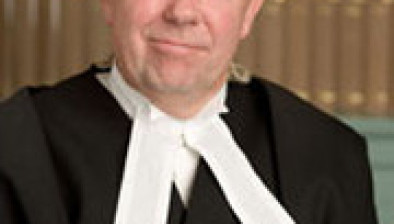High Court: HSE’s application to set aside summons renewal rejected

Andrew McKeown BL
The High Court has dismissed the HSE’s application to set aside an Order renewing a personal injuries summons.

About this case:
- Citation:[2020] IEHC 483
- Judgment:
- Court:High Court
- Judge:Mr Justice Kevin Cross
Background
Sheila Murphy, by way of personal injuries summons, claimed damages for the alleged negligence and breach of duty of the Health Service Executive (HSE) as a result of her treatment at a hospital in Mayo in March 2016. Ms Murphy contends that the HSE failed to properly treat her for her symptoms and as a result she sustained a right parietal ischaemic infarct. Ms Murphy is 81 and is still in very poor health.
The summons issued was a “precautionary” summons issued in order to prevent any further running of time, without the benefit of expert opinions or particulars. Mr Justice Kevin Cross noted in his decision that this “is a regular form of pleading that seems to have become more common after the period for the Statute of Limitations reduced from three to two years.”
In February 2020, Ms Justice Deirdre Murphy renewed the summons for a period of three months due to the specified special circumstances justifying the making of the order as being the delays that occurred in obtaining medical reports.
The HSE sought the setting aside of that order.
Since January 2019 when application for an extension is made, the court must be satisfied that there are “special circumstances” justifying the extension. The period of renewal allowed under Ord.8 r.1 RSC was reduced from six months to three months and provisions that had previously existed to allowing a renewal “from time to time during the currency of the renewed summons” are not repeated in the amended order.
The parties disagreed on the appropriate test for an application to extend pursuant to Ord.8 r.1(3). Mr Buckley SC, who appeared with Sarah Corcoran BL for the HSE, submitted that judicial interpretation confirms that the appropriate approach is to consider two distinct aspects of the application. Citing the judgment of Mr Justice Brian O’Moore in Ellahi v Governor of Midlands Prison and Others [2019] IEHC 923, he submitted that the court must first be satisfied before renewal of the summons that special circumstances exist which justify an extension of time in order for the plaintiff to seek leave to renew. Second, the plaintiff must also demonstrate that there are good reasons to justify the renewal of the summons. That position was confirmed by Ms Justice Niamh Hyland in Brereton v Governor of National Maternity Hospital [2020] IEHC 172.
Mr Justice Cross said that he had “little difficulty in accepting that special circumstances must exist to allow an extension of time and that there must be good reason to justify the renewal.” Noting that while he would not “wish to be seen to be in any way going against decisions of my colleagues”, the judge said that “without those aforementioned decisions, it would not be my reading” of the Rules of Court that a court is first obliged to consider “special circumstances” and then decide on “good reasons”.
The judge said that he “happily” did not have to pronounce on that issue because counsel for the HSE conceded that there were no circumstances in which he could imagine a court would hold that there were special circumstances justifying the extension of time and not conclude that there were good reasons justifying the renewal of the summons.
Counsel for the HSE argued that Ms Murphy’s original application made no reference to special circumstances, but the judge said that it was clear that Ms Justice Murphy was able to adduce that the reason for the delay was the delay in obtaining medical reports which were “special circumstances” justifying the application.
Counsel, citing the judgment of Mr Justice Philip O’Sullivan in Allergan Pharmaceuticals (Ireland) Ltd v Noel Deane Roofing and Cladding Ltd [2006] IEHC 215, said that a lawyer’s concern to have a proper basis for initiating proceedings against had to be counter balanced by a proportionate advertence to the policy underlying the statute of limitations so as to protect patients or to protect prospective professional defendants.
Counsel said a party is not entitled to wait indefinitely for an expert report before issuing or serving a summons, relying on the decision of Mr Justice Frank Clarke in Maloney v Lacey Building and Civil Engineering Ltd [2010] 4 IR. He said that the delay was compounded by Ms Murphy’s solicitor’s failure to notify the HSE of the claim, and that they made no effort to apply to the Master of the High Court to renew the summons before its expiry.
Patrick Treacy SC, who appeared with Ciara McGoldrick BL for Ms Murphy, argued that there was no culpable delay in the obtaining of the opinions of experts, once Ms Murphy had done the necessary and put her solicitor in funds. Counsel relied on Ms Justice Caroline Costello’s judgment in Mangan v Dockery [2014] IEHC 477.
Mr Justice Cross said that the fact that Ms Murphy’s solicitors failed to notify the HSE of their case was wrong and “clearly counts in favour” of the HSE in the application, but he noted no specific prejudice has been alleged. He said that he did not accept that a plaintiff is entitled in the absence of satisfactory expert opinion to await indefinitely such opinion.
However, the justice accepted the requirements of the Code of Conduct of a barrister, and the law, mean that cases ought not to be settled until the expert report is or is likely to be available to support the claim. He accepted that the absence of the necessary expert opinions to ground the case was a special circumstance justifying, in the absence of any culpable delay, the renewal and extension of time.
Conclusion
The court said that given the fact that Ms Murphy could not be criticised, her solicitors could not be criticised, nor could the doctors, for any particular delay. As there was no specific prejudice, the judge found that there were special circumstances justifying the application and the order made.
The court held that the failure to notify the HSE of the facts of the proceedings was outweighed by the prejudice to Ms Murphy if the HSE’s application was granted. The HSE indicated that they would be making a plea under the Statute of Limitations, so it was clear to the court that if Ms Murphy was forced to issue new proceedings, that any such application would be “significantly strengthened.”
The HSE’s application was rejected.










